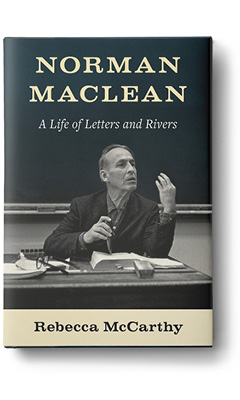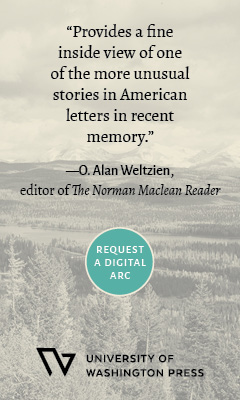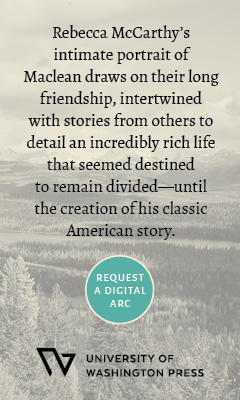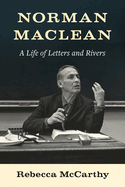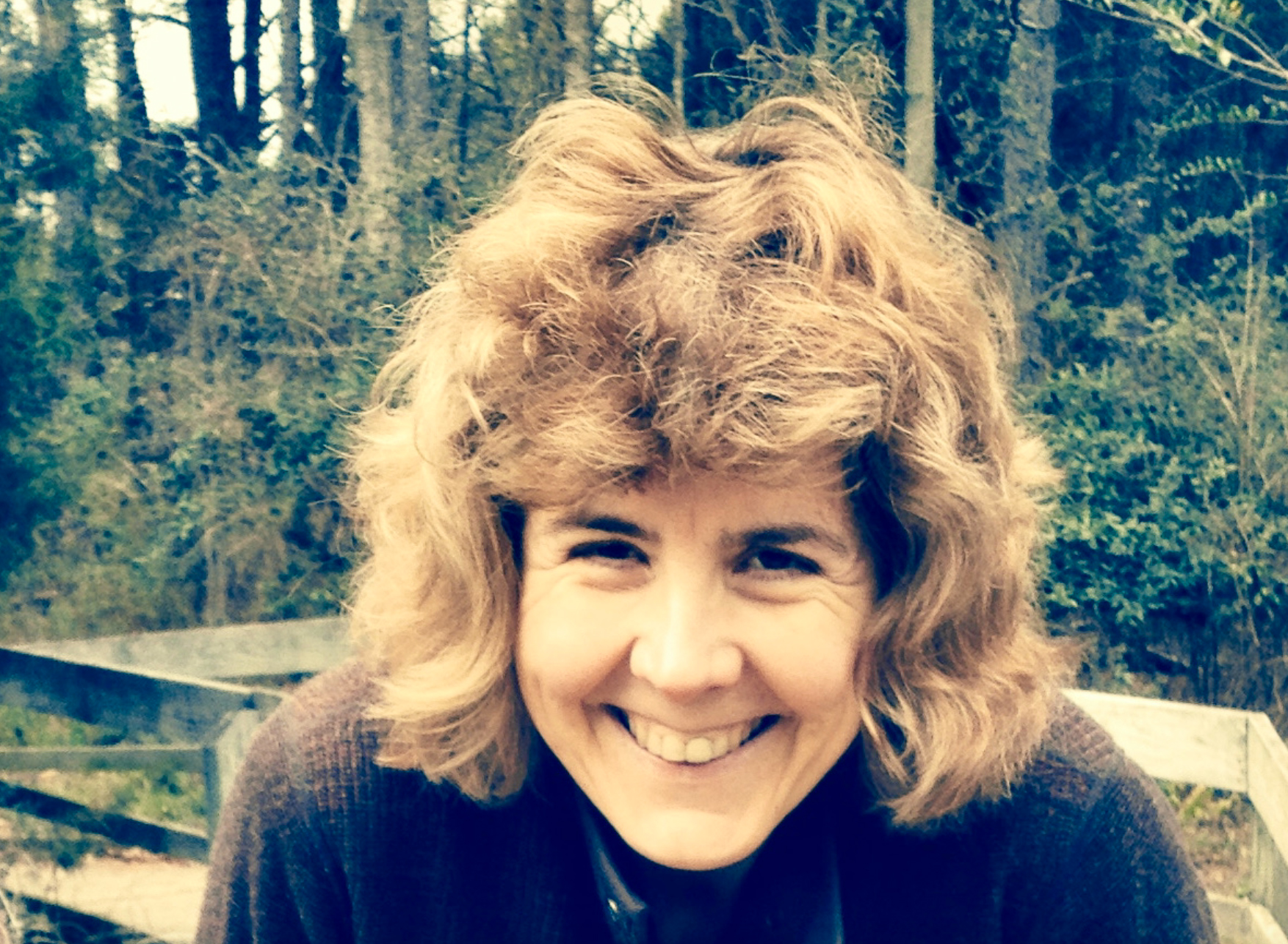Norman Maclean: A Life of Letters and Rivers
by Rebecca McCarthy
Thanks to Rebecca McCarthy--writer and friend of teacher and author Norman Maclean--readers are afforded a profoundly intimate glimpse into the life of an enigmatic man who became most notable for his exquisitely rendered novella, A River Runs Through It.
Literary success arrived late for Maclean. In 1976, when he was in his 70s and an already retired professor of English literature, Maclean launched a second career as a published author via A River Runs Through It and Other Stories. The title story of the collection is set in early 20th-century Montana, and offers a fictionalized account of Maclean's formative years and his relationship with Paul, his "glittering, doomed younger brother, whom he loved but couldn't help and who was murdered." The collection has sold close to two million copies worldwide, and the title story gained additional acclaim after it was adapted into an Academy Award-winning feature film directed by Robert Redford.
Many admirers of the novella and film might be surprised to learn that Maclean, a deeply private man, was burdened with guilt over his brother's death that prevented him from writing the story for almost 40 years. But through McCarthy's expansive narrative that merges her own personal experiences with an in-depth biography of Maclean, she traces the tributary-like forces that congregated to shape the course of the storyteller's life.
Born in Clarinda, Iowa, in 1902, Maclean and his family migrated to Montana in 1909. He was homeschooled by the guiding influences of his admired and deeply religious parents: his mother, Clara, was social and philanthropic; his literature-loving father, John, a devout minister, believed that man's chief end was to "glorify God and to enjoy Him forever," while also espousing the virtues instilled by fly-fishing--"the art that is performed on a four-count rhythm between ten and two o'clock." Thus, Maclean spent a lifetime as a literature lover and a "practicing" fisherman.
In 1928, when Maclean and his wife, Jessie, moved east so he could teach at the University of Chicago, Hyde Park would become his own family's permanent home. As a campus legend and "celebrated as a formidable English teacher," his academic career took him away from Montana, but his heart and soul remained rooted in those early, formative years. He remained passionate about Montana and spent many months every year at his family's rustic cottage on Seeley Lake. Later in life, he worked hard to save and preserve its natural wilds.
The first half of McCarthy's book details her personal quest to become a poet and how--through that passion--she met Maclean, an "older and lonely widower" in 1972. That summer, 16-year-old McCarthy traveled from her family's home in South Carolina to Seeley Lake, where her cherished brother, John, served with the US Forest Service.
While staying with John and his family, McCarthy dined with "Dr. Maclean," who expressed a sincere, personal interest in the young, aspiring poet, showing great respect in discussing writing and literature with her. Afterward, Maclean took McCarthy under his wing and even shared his work-in-progress, "USFS 1919." This story--included in A River Runs Through It and Other Stories; Maclean was working on the collection at this time--details his experiences as a teenager in the early Forest Service. A bond was forged between these two writers, generations apart, as Maclean encouraged McCarthy in her work and mentored her, convincing her to attend the University of Chicago. Maclean would become a critic for McCarthy's work, "gently suggesting changes, praising words and lines he liked, and teasing" about her shortcomings.
As they became friends, she was privy to the high standards of his work ethic--as a perfectionist, he expected much of himself, and of others as well. Maclean's love of--and sensitivity toward--language, literature, good writing, and poetry fostered his reverence for Shakespeare and the Romantics. He passed on this enthusiasm to students, who lined up to take his courses. It also contributed to the many enriching and loyal friendships Maclean made with influential notables in academia--those who, for decades, became trusted confidants and socially connected friends with him and his loving partner and wife, Jessie, who died of cancer in her 60s.
The witness McCarthy presents is supplemented by meticulous research, letters, and interviews that capture a well-rounded portrait of Maclean. She posits that in his Chicago life, Maclean "cultivated a persona for himself... a lone wolf from the mountains of Montana, where men were men. This Norman Maclean was a plainspoken, truth-telling, profanity-spouting, chain-smoking tough guy, whose deadpan delivery could silence departmental meetings and whose stare could quiet a room of chattering students. Those who didn't know Norman well were afraid of him."
McCarthy, however, grew to understand him and his vulnerabilities very well. Maclean was an ordinary man who was a great home cook and liked to drink. Meditative, he suffered bouts of self-doubt and debilitating depression, and endured many physical infirmities. The persistence of lingering writer's block stifled his academic and literary output and even snuffed out his dedicated, decades-long efforts on two nonfiction books that were left unfinished, about Custer and Little Big Horn, and about the 1949 Mann Gulch, Montana, wildfire that became one of the deadliest firefighting disasters in American history. (That book, Young Men and Fire, was ultimately published posthumously.)
The latter sections of the book that celebrate the fruits of Maclean's writing labors--the arduous, circuitous route A River Runs Through It and Other Stories traveled to publication, its ripe reception, and how the title story was beautifully adapted into an award-winning film--will be as rewarding "a happy ending" to readers as it was to Maclean himself. Tragedy and art shaped Maclean's profound life, and his writing ultimately kept him alive. McCarthy, in her thorough, deep-dive into this myth of a man--and the influence he and his writing had on her life and the lives of others--is equally exceptional in preserving his legacy. --Kathleen Gerard



